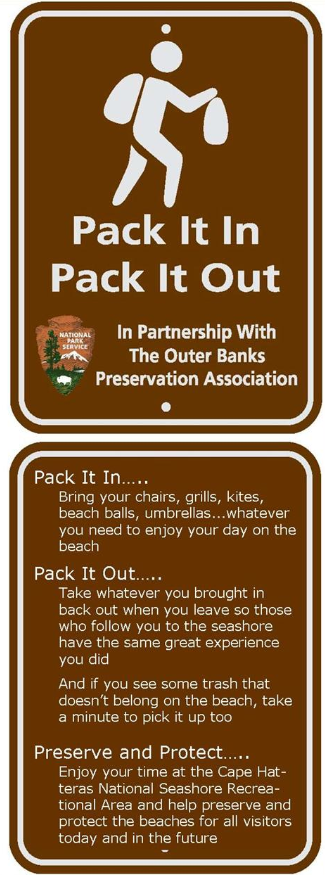Thursday, July 12, 2007
Plovers In The News
Army corps kills birds protected by federal law
Engineers raise water levels for towboats, causing sandbars with nesting animals to be inundated
By Bill Lambrecht
St. Louis Post-DispatchContra Costa Times
Article Launched:07/12/2007 03:02:43 AM PDT
WASHINGTON -- Even as the government spends $45 million this year to restore federally protected birds along the Missouri River, the Army Corps of Engineers is killing some of them by raising water levels to allow a single towboat to proceed upriver.
Federal biologists warned in recent meetings that 200 chicks and eggs of endangered piping plovers and threatened least terns could perish in rising water the corps is releasing to permit a towboat to reach Blair, Neb., this week to retrieve four barge loads of alfalfa pellets.
With the towboat MV Omaha proceeding upriver Tuesday to pick up the pellets, the corps acknowledged that at least 19 eggs had been lost. That number could increase as more water is released from Gavins Point Dam in South Dakota to provide sufficient water for the towboat's navigation.
The bird mortality -- referred to under the Endangered Species Act agreements as "incidental take" -- underscores the trade-offs the government is making while attempting to preserve species along the Missouri and still allow for barge traffic.
"The highway is there and people can use the highway," said corps spokesman Paul Johnston, noting the corps' congressionally ordered mandate to maintain conditions for Missouri River barge traffic.
Johnston added that Army engineers have been working to balance competing interests on the river and move nests and chicks to safety when possible.
Few barges have operated so far upriver recently because of water shortages from severe drought. The corps has shortened the Missouri's navigation season every year since 2003; this year's barge season was cut by 35 days, ending in late October.
Despite its expensive program to build sandbars for terns and plovers, the corps accommodated Consolidated Blenders Inc. when the Nebraska company asked for higher water to move alfalfa pellets down the Missouri during nesting season. In recent days the corps increased the flow of water from Gavins Point Dam by about 3,000 cubic feet per second.
That translated to water rising 4 or 5 inches upriver -- enough in some spots to inundate sandbars where the birds are nesting.
The 5,000 tons of concentrated alfalfa will be shipped to the Mississippi River en route to Arkansas, where it will provide food for horses, rabbits, goats and sheep, said company President Mike Olson.
"That river is really important to our company, and we just feel like our future is tied to it," said Olson.
Olson said his company has not shipped on the Missouri for several years but hopes to load more barges with alfalfa pellets before the close of this navigation season. He added that shipping by railroad was inconvenient because of loading and that he was unable to wait until the birds were no longer nesting because his company had run out of storage space.
The Endangered Species Act forbids a federal agency from harming a federally protected species. Least terns are classified as endangered; piping plovers carry the federal designation of "threatened."
Another Mike Olson, the U.S. Fish and Wildlife Service's Missouri River coordinator, said the corps has legal protections for its decision as a result of an agreement with the fish and wildlife agency that allows the killing of about 340 birds, a level of "incidental take" the corps has not reached.
"That's why they're out there spending millions of dollars to build this high-elevation sandbar habitat, to keep the incidental take a minimum," Olson said. "But there are still birds nesting at low-elevation sandbars that become inundated."
Chad Smith, the Missouri River expert for the advocacy group American Rivers, said that people with a stake in river management need to devote more thought to preventing mortality of protected species.
"Right now, it's too easy to turn on the spigot and not be thinking about the consequences. We spend all this time and money on the river to get these species recovered, but in one fell swoop we set ourselves back," he said.
Engineers raise water levels for towboats, causing sandbars with nesting animals to be inundated
By Bill Lambrecht
St. Louis Post-DispatchContra Costa Times
Article Launched:07/12/2007 03:02:43 AM PDT
WASHINGTON -- Even as the government spends $45 million this year to restore federally protected birds along the Missouri River, the Army Corps of Engineers is killing some of them by raising water levels to allow a single towboat to proceed upriver.
Federal biologists warned in recent meetings that 200 chicks and eggs of endangered piping plovers and threatened least terns could perish in rising water the corps is releasing to permit a towboat to reach Blair, Neb., this week to retrieve four barge loads of alfalfa pellets.
With the towboat MV Omaha proceeding upriver Tuesday to pick up the pellets, the corps acknowledged that at least 19 eggs had been lost. That number could increase as more water is released from Gavins Point Dam in South Dakota to provide sufficient water for the towboat's navigation.
The bird mortality -- referred to under the Endangered Species Act agreements as "incidental take" -- underscores the trade-offs the government is making while attempting to preserve species along the Missouri and still allow for barge traffic.
"The highway is there and people can use the highway," said corps spokesman Paul Johnston, noting the corps' congressionally ordered mandate to maintain conditions for Missouri River barge traffic.
Johnston added that Army engineers have been working to balance competing interests on the river and move nests and chicks to safety when possible.
Few barges have operated so far upriver recently because of water shortages from severe drought. The corps has shortened the Missouri's navigation season every year since 2003; this year's barge season was cut by 35 days, ending in late October.
Despite its expensive program to build sandbars for terns and plovers, the corps accommodated Consolidated Blenders Inc. when the Nebraska company asked for higher water to move alfalfa pellets down the Missouri during nesting season. In recent days the corps increased the flow of water from Gavins Point Dam by about 3,000 cubic feet per second.
That translated to water rising 4 or 5 inches upriver -- enough in some spots to inundate sandbars where the birds are nesting.
The 5,000 tons of concentrated alfalfa will be shipped to the Mississippi River en route to Arkansas, where it will provide food for horses, rabbits, goats and sheep, said company President Mike Olson.
"That river is really important to our company, and we just feel like our future is tied to it," said Olson.
Olson said his company has not shipped on the Missouri for several years but hopes to load more barges with alfalfa pellets before the close of this navigation season. He added that shipping by railroad was inconvenient because of loading and that he was unable to wait until the birds were no longer nesting because his company had run out of storage space.
The Endangered Species Act forbids a federal agency from harming a federally protected species. Least terns are classified as endangered; piping plovers carry the federal designation of "threatened."
Another Mike Olson, the U.S. Fish and Wildlife Service's Missouri River coordinator, said the corps has legal protections for its decision as a result of an agreement with the fish and wildlife agency that allows the killing of about 340 birds, a level of "incidental take" the corps has not reached.
"That's why they're out there spending millions of dollars to build this high-elevation sandbar habitat, to keep the incidental take a minimum," Olson said. "But there are still birds nesting at low-elevation sandbars that become inundated."
Chad Smith, the Missouri River expert for the advocacy group American Rivers, said that people with a stake in river management need to devote more thought to preventing mortality of protected species.
"Right now, it's too easy to turn on the spigot and not be thinking about the consequences. We spend all this time and money on the river to get these species recovered, but in one fell swoop we set ourselves back," he said.


